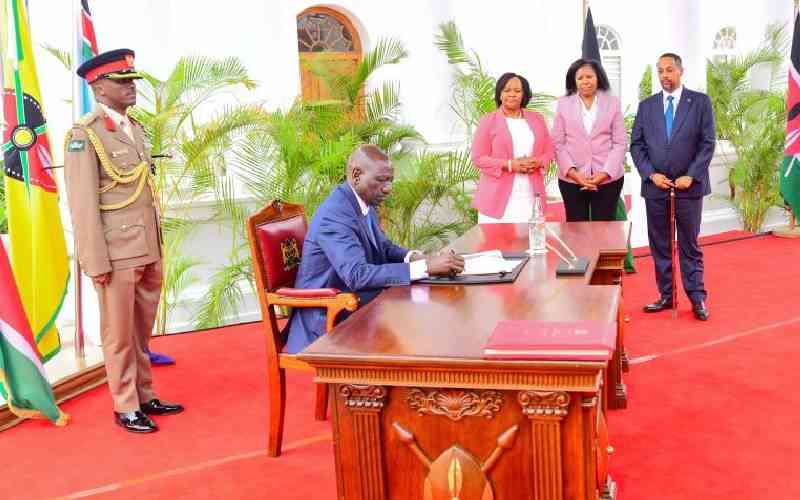×
The Standard e-Paper
Fearless, Trusted News

The honeymoon is over and some Cabinet Secretaries, Principal Secretaries and heads of parastatals will soon be on the chopping board once President William Ruto cracks the whip as he promised on Tuesday.
The Head of State sent the clearest signal yet of the looming axe when he locked out some CSs, PSs and heads of parastatals for reporting late to State House, Nairobi, for signing performance contracts.